
:: ROVA NEWS: MARCH - APRIL 2014 ::

In this Newsletter:
Rova Member Shows»
Rova:Arts Sponsored
Events at C4NM»
Steve Lacy on Improvisation»
+ 1 - Guest Contributor:
Henry Kaiser»
Favorite Street – Steve
Adams»
Join the Rova:Arts
Community»
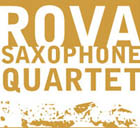
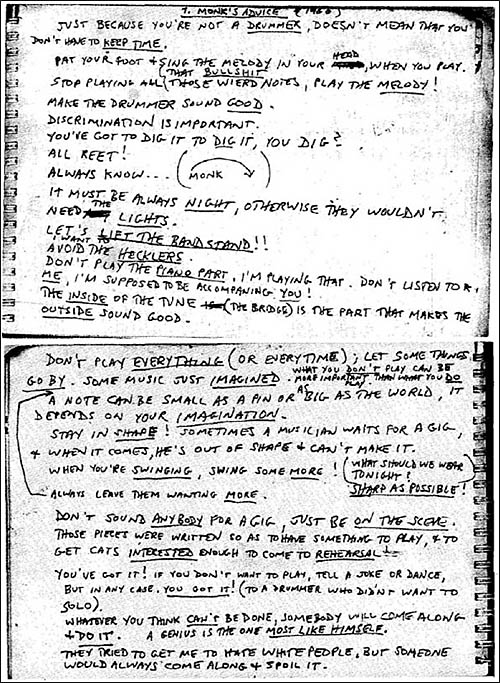
In advance of this summer’s shows commemorating the music of Steve Lacy and marking 10 years since his passing, Rova is unearthing arrangements, old parts, and recordings to reconstruct our prior tributes to him—the 1983 Black Saint Records LP/CD, Favorite Street, and the 2003 collaboration, Saxophone Special. Guests, including Ben Goldberg, Henry Kaiser, and Kyle Bruckmann, will participate in the events. Watch for details about our June 6 and July 11 concerts on our site and in the May-June Rova News. As Jon Raskin recently put it, Lacy and his music are simply fading from the world too quickly. We hope our concerts will help to shine some light on his enormous contribution. I found the above list of Monk tips to players in Lacy’s hand from 1960, and am sharing it here as an interesting artifact from his rich history in jazz and improvised music.
With the current Rova News we’re adding two new features with the intention of broadening our communications beyond the work of Rova, and to enlarge the newsletter’s scope to include aspects of the greater music and art community of which we are a part. We’ll now include a listing of events curated by Jon Raskin and Larry Ochs at the Center for New Music, San Francisco’s thriving hub for vanguard art. Sponsored by Rova:Arts, these events will include music, poetry, film and dance. Details can be found below in the section dedicated to the C4NM, and on the Rova:Arts and C4NM sites.
We’re also initiating a feature we’re calling “+1 – Guest Contributor”. Our plan is to engage a range of different artists to submit articles for upcoming newsletters, providing them a forum to offer a view into what motivates them and informs their work. Below is the first submission, from guitarist and co-conspirator, Henry Kaiser: an appreciation of the Persian music label Hermes. Appropriately, not only is Henry joining us for our July Lacy tribute, he has been a long-time collaborator with each of the Rovas, stretching back to pre-quartet days.
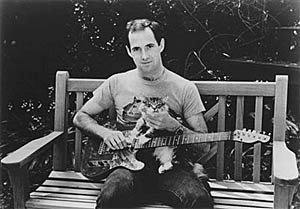
Henry Kaiser and friends c. 1980
In February the latest iteration of Orkestrova—Rova + string quartet + power trio—performed at the first annual Active Music Festival, organized by members of the Oakland Active Orchestra, Aram Shelton and Crystal Pascuzzi, and co-sponsored by Rova:Arts. The festival was a total gas, and a great success, celebrating the vitality of this multi-faceted music. Over 3 nights, more than 60 musicians performed to enthusiastic listeners, who turned out in impressive numbers at the Uptown Bar and Duende Restaurant in Oakland. The series gave the community a jolt, and will surely reinvigorate an already teaming Bay Area improvisers’ scene. Bravo! to all participants, organizers, and listeners.
[TOP]
Rova Member Shows
Saturday March 22nd 2 PM to Noon on Sunday the 23rdVexations Re-Vexed II
A marathon performance of re-imagined versions of Erik Satie’s Vexations, featuring 30 minute sets by many of the Bay Area’s best.
Steve Adams – flute and electronics and many, many others. Check the website for names and times.
Organized by pianist, Joe Lasqo, this extraordinary event is sure to be illuminating. Come for an hour or three, come for the whole event—drink in the Satie!
Berkeley Arts Festival
2133 University Avenue
Berkeley
$15/$10 members
www.berkeleyartsfestival.com
Saturday, May 3rd, 9 PM
Jon Raskin Trio + The Lost Trio
Jon Raskin Trio:
Jon Raskin - alto sax
Lisa Mezzacappa - bass
Vijay Anderson - drums
The Lost Trio:
Phillip Greenlief - sax
Dan Seamans - bass
Tom Hassett - drums
Duende Restaurant
19th Street
Oakland
www.duendeoakland.com
[TOP]
Rova:Arts Sponsored Events at the Center for New Music
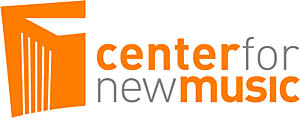
Larry Ochs and Jon Raskin are currently curating Rova:Arts sponsored events at San Francisco’s Center for New Music. The Center is located just off Market Street, a block from Powell Street BART. Unless noted otherwise, all events start at 7:30 PM.
Note that in addition to the screening of John Rogers’ documentary film, Channeling Coltrane, on April 19, the Center is featuring FILM @ C4NM, 6-week series screening some of the most compelling new music documentaries and performance films of the past decade. Screenings on weekends March 15 through April 19. Produced by Suki O’Kane; curated by Peter Esmonde, the films document the work of the Art Ensemble of Chicago, Frank Zappa, Derek Bailey, Tom Zé, and many other artists. For complete details for all events, see: http://centerfornewmusic.com/calendar/.
Wednesday, March 5th
Sten Sandell
Sten Sandell (piano) with guest Gino Robair
(percussion/electronics)
Sunday, March 23rd, 4:00 PM
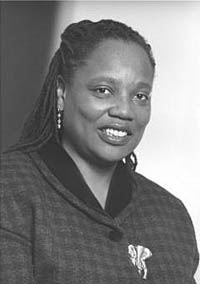
Erica Hunt
Friday, April 4th
Marty Ehrlich / Erica Hunt Duo
Center for New Music
Marty Ehrlich, saxophones and clarinet, and
Erica Hunt, poetry
Wednesday, April 9th
Doug Weiselman
Doug Weiselman, solo clarinet + clarinet quartet featuring Doug with Beth Custer, Ralph Carney and Ben Goldberg
Friday and Saturday, April 11th, 12th
Ned Rothenberg
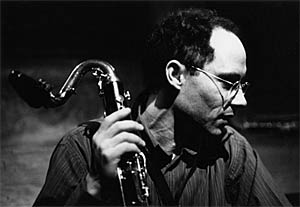
Ned Rothenberg, photo by David Agasi
Ned Rothenberg alto saxophone and clarinets, performing solo each night and in duos: April 11 with Gino Robair; April 12 with Chris Brown
Saturday, April 19th, 2:00 PM
Channeling Coltrane Screening - Electric Ascension on Film
A special screening of both the new documentary on Ascension, Cleaning the Mirror, PLUS the concert-video Electric Ascension Live @ 2012 Guelph Jazz Festival in a re-imagination of Coltrane's masterwork. Rova joined by Frith, Kihlstedt, Scheinman, Mazurek, Nels Cline, Hamid Drake, Ikue Mori, Chris Brown. Including a Q & A with filmmaker John Rogers, plus musicians Larry Ochs and Jon Raskin. Limited seating. Don’t miss it.
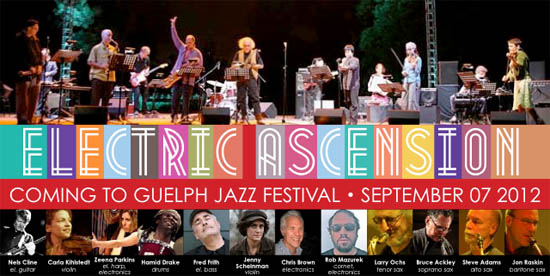
Sunday, April 20th, 2014
On Structure + Bryan Jacobs
On Structure is a composer/performer collective featuring
Jessie Marino and Natacha Diels. Bryan Jacobs writes
pieces with live processing.
Friday and Saturday, April 25th, 26th
Merkuri and Shahrzad Dance Company
Performing Paradox of Balance
[TOP]
Steve Lacy on improvisation
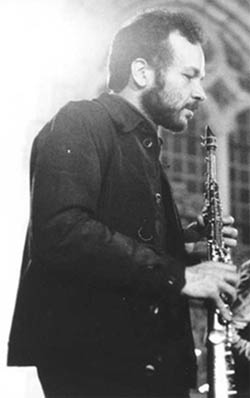
Steve Lacy, 1971
The following is a Steve Lacy article from Derek Bailey’s book, Improvisation (Da Capo Press). We include this article in anticipation of Rova’s revisiting of Lacy’s music in concerts on June 6 and July 11 in the Bay Area. Complete details in the May newsletter.
For me that’s where the music has to be—on the edge—in between the known and the unknown, and you have to keep pushing it towards the unknown, otherwise it and you die.
The changes which began in the late ‘50s, and were probably completed by the middle ‘60s, came about because in the ‘50s jazz was no longer on the edge. When you reach what is called ‘hard bop’ there was no mystery any more. It was like, mechanical—some kind of gymnastics. The patterns are well-known and everybody is playing them. When I was coming up in New York in the ‘50s I was always into the radical players, but at the same time I was contemporary with some of the younger accepted players. And sometimes I would go up and play with them. People like Donald Byrd and Herbie Hancock. They were the newer accepted people. I was also working with Cecil Taylor, Mal Waldron, and other people who were the radicals. I was really mainly concerned to work with the radical people but at the same time I couldn’t ignore the non-radical elements. But for me playing with the accepted people never worked out. Simply because they knew all the patterns and I didn’t. And I knew what it took to learn them, but I just didn’t have the stomach for it. I didn’t have the appetite. Why should I want to learn all those trite patterns? You know, when Bud Powell made them, fifteen years earlier, they weren’t patterns. But when somebody analyzed them and put them into a system it became a school and many players joined it. But by the time I came to it, I saw through it— the thrill was gone. Jazz got so that it wasn’t improvised any more. A lot of the music that was going on was really not improvised. It got so that everybody knew what was going to happen and, sure enough, that’s what happened. Maybe the order of the phrases and the tunes would be a little different every night, but for me that wasn’t enough. It reached a point where I, and many other people, got sick and tired of the ‘beat’ and the ‘bars’—everybody got tired of the systematic playing, and we just said ‘Fuck It!’.
But, I think the question of appetite is very important. Some people are of a progressive bent and some are not. And you can’t ask either of them to change. Some people are interested in carrying on an old tradition and they can find their kicks in shifting around patterns, and they are not in any rush to find new stuff. They can rummage around the old stuff all their lives. People become obsessed with not just maintaining a tradition, but with perfecting it. Some people search for the perfect arrangement of the old patterns and that is progress for them. Other people want to beat down the walls and find some new territory.
What Cecil Taylor was doing started in the early ‘50s. And the results were as free as anything you could hear. But it was not done in a free way. It was built up very, very systematically, but with a new ear and new values. But, there was complete opposition to what he was doing in the ‘50s. Then when Ornette hit town that was the blow. On the one hand there were all the academic players, the hard-boppers, the ‘Blue-Note’ people, the ‘Prestige’ People, and they were doing stuff which had slight progressive tendencies in it. But when Ornette hit the scene, that was the end of the theories. He destroyed the theories. I remember at that time he said, very carefully, ‘Well, you just have a certain amount of space and you put what you want in it’. And that was a revelation. And we used to listen to him and Don Cherry every night and that really spread a thirst for more freedom.
But I think the key figure just then was Don Cherry. Cherry was freer, in a way. He didn’t worry about all the stuff that Ornette was worrying about, and his playing was really free. He used to come over to my house in ’59 and ’60, around that time, and he used to tell me, ‘Well, let’s play. So I said ‘O.K. What shall we play.’ And there it was. The dilemma. The problem. It was a terrible moment. I didn’t know what to do. And it took me about five years to work myself out of that. To break through that wall. It took a few years to get to the point where I could just play.
It was a process that was partly playing tunes, and playing more tunes, and finally getting to the point where it didn’t seem to be important; and, it didn’t do anything for you to play the tunes. So, you just drop the tunes. And you just played. It happened in gradual stages. There would be a moment here, fifteen minutes there, a half hour there, an afternoon, an evening, and then all the time. And then it stayed that way for a couple of years. No tunes, nothing. Just get up and play. But it all had a lot to do with the musical environment. You have to get some kindred spirits. And at the time that was in the air. It was happening everywhere. But I think that jazz, from the time it first began, was always concerned with degrees of freedom. The way Louis Armstrong played was ‘more free’ than earlier players; Roy Eldridge was ‘more free’ than his predecessors; Dizzy Gillespie was another stage; and, Cherry was another. And you have to keep it going otherwise you lose that freedom. And then the music is finished. It’s a matter of life and death. The only criterion is: ‘Is this stuff alive or is it dead?’
+ 1, Guest Contributor, Henry Kaiser
HERMES RECORDS of Iran, an Appreciation

For years I haunted the world music sections of Bay Area record emporiums, hunting for the inspiring, the surprising, the alien, and the obscure. I searched things out both to inspire myself musically, and to share with my friends and KPFA listeners. The music of Iran was always one of my favorite areas to explore. It is certainly one of the most powerful and expressive tributaries of the great rivers of the musics of Islam.
During the past decade, with the great disappearance of many of the Bay Area’s record shops, and the shrinking of world music sections in the stores, I turned to the internet to find much of my world music CDs.
There seemed to be several suppliers of Persian musics in the Los Angeles area and I ordered many CDs from them online. One of the best sources for Persian music seemed to be Music Box: http://www.yelp.com/biz/music-box-los-angeles. Sadly their website, http://www.musicboxla.com, seems to be unavailable or gone, when I checked in on it this morning. A little over two years ago, I had noticed that among most of the favorite of the dozens of the CDs that I had purchased from Music Box were those from the Hermes Label in Iran.
I went directly to the label’s website and was astonished by what I found there.
Take a look at: http://www.hermesrecords.com/en/ . Take a look now. You will find a catalog of over 73 releases that encompasses New Music, Jazz, Persian Classical, Tribal Music, World Music Collaborations, Armenian Music and more.
The labels mission and history statements include this information:
There is no reason for Music. It simply exists.
Hermes Records was founded in Winter 1999 aiming to produce and promote modern persian music, discover creative musicians and help artists approach new horizons. While the music industry in Iran is devoting most of its attention to popular and traditional genres, artists from diverse backgrounds have been brought together to explore common understandings and new musical colorings under the slogan Music for Music. The trust of talented persian musicians as well as artists from abroad has helped us walk through this path and continue searching for new ideas.
Our Vision: Creating a joyful and inspirational environment to generate musical ideas.
Our Mission:
- To attain and sustain international reputation for persian music and artists.
- To utilize advantages of persian music
- To establish a share for persian musical productions in the global market.
- To defend the legal rights of persian artists
- To make people enjoy music!
1999 - November
- The idea clicks!
2000 - January 11 - Hermes Records officially established
2001 - June - first release (Earth Whisper - Mohammadreza
Aligholi)
2002 - October - first official presence abroad (WOMEX
- Essen, Germany)
2003 - January - first live event (Ensemble EA concert
in Tehran)
2004 - October - first concert abroad (Nour Ensemble,
Paris)
2007 - Grammy nomination for best World Music album in
2006 (Endless Vision - Hossein Alizadeh, Jivan Gasparyan)
2009 - November - 50th release (Thousand Acacias, Hooshyar
Khayam)
2010 - January 11 - Hermes Records' 10th Anniversary

I have more than a couple of dozen albums on the label. The engineering and recorded sound is typically on a level with the best ECM productions. The musicians sound inspired and “in-the-zone” performance-wise. The music is unusual to Western ears and traditional and experimental at the same time.
I am amazed that this label has received almost no notice and press in the USA. True, it’s a time of musical xenophobia for the US music industry, and relations with Iran are not the most friendly between the two countries. But that’s also a time for musicians and listeners to try to bridge the gaps, a time to share, and a time to celebrate the pure joy of music.
I asked Ramin Sadighi, the owner and founder of Hermes Records a few questions about the label:
What is your model for
the label and your curation and production of the
musics?
This is always the toughest question for me! Frankly
said, I never thought about which lines to follow or
which kind of music to invest in or exploit. From the
very beginning I only clarified the “What I won’t
do”s. Despite my own personal taste, which varies
from Early Music to ordinary Pop Music (but of course
with great fondness to Progressive Rock, Jazz and Classical
Music), my model for Hermes was to exclude Pop, Pure
Traditional or Folk, and routine Classical Music. Whatever
would meet this criteria, but could catch my attention
could definitely have a place in my label. To conclude,
I have to say that, in general, I have no tendency to
categorize music, and believe that our slogan speaks
to it (Music for Music). So, if a musical project (which
in many times gets initiated by myself), or any musical
idea could have a hook on me, then I simply jump into
it.
The albums on Hermes all
have such excellent sound/engineering. Was this an
easy thing to achieve?
Wow, you made a great compliment which I appreciate very
much! Being a musician myself I always had the obvious
concerns of a musician regarding sound quality. Now and
since I stopped making or playing music myself and dedicated
my life in production, I still carry these concerns on
behalf of my musicians. I am not that typical wealthy
producer who just signs checks, or produces only according
to the market demand. Actually, a good working bank account
is the only thing which I don’t have at all! As
a producer, I feel as responsible as the musicians for
creating proper sounds. And, of course, I feel blessed
that the whole Hermes Network is actually formed around
a circle of friends in which we have made music since
30 years ago. So, we understand each other blind, and
throughout the past 14 years, after establishing Hermes,
we all enjoyed this environment to bring out the sound
we all desire. In the beginning Hermes was a hobby—a
hobby with no serious vision towards profit. More an
environment for doing things we wished to do, if you
like. Therefore, quality was one of those wishes which
the lack of it really hurt us throughout the years. This
we never sacrificed for any benefit and became our identity,
even after my hobby became my job (and turned in the jobby), I
still stayed loyal to it.
Where is most of the Hermes
product sold?
Surely Iran is the main market. Despite our online sales
via the digital downloading portals, our physical sales
abroad are mostly in France, England, Greece and Turkey.
In the USA we still can’t have an official presence
(due to the sanctions and custom hurdles) and, in spite
big interest there, we have to stick only on the digital
sales and small quantity orders via our website.
Tell us about the music
scenes that you are involved with and which most
enjoy in Iran?
Parallel to production and releasing albums, we also
sell licensing abroad for compilations, or for secondary
usage (films, documentary, etc.), as well as organizing
concerts. Hermes doesn’t really act as an event
organizer, and only concentrates to organize concerts
for its own musicians (both in Iran and abroad), which
reaches a limited number (up to 10 concerts per year).
But, I myself, in collaboration with the Fadjr International
Music festival in Tehran, have my own Jazz/Experimental
week every February in which I host musicians from other
countries in Tehran for concerts. Till now, musicians
such as Renaud Garcia-Fons, Tarkovsky Quartet, Stephan
Micus, Anouar Brahem, Anja Lechner, Ronin, Colin Vallon
Trio, Wolfert Brederode Quartet, Ralph van Raat were
among the musicians I have invited to play live. And
as you may recognize, a good number of them are ECM artists.
Fortunately, I have a good relation with ECM, Manfred
Eicher and his artists, so am able to invite them to
Iran.
What’s in the musical
future?
I strongly believe that music will re-marry with its
original essence, which is being performed live and turning
again into a social event. Production, releasing albums
in the 70s to 90s fashion will be over soon (if not yet!).
A good portion of artists will only survive if they still
could be able to perform live. I think the whole digital
and downloading and piracy crisis accelerated in the
past decade had severe consequences but in overall it
helped music to find its roots. Music is a phenomenon
which should be experienced in a community, and not just
at home and with loudspeakers. Music is a phenomenon
in which artists and audience should be able to get connected
closely (in small venues and clubs) instead of giant
venues only, where there is big distance between them.
Musicians will more and more getting involved in the
details of their profession (sound, marketing, promotion,
PR, etc.). Consumers feel more satisfied by buying the
albums directly from the artists instead of record shops
or other middlemen. Building the more humane sympathy
between musicians and audience is the key of success.
Crowd-Financing can take over traditional productions.
In the end, I guess, music will become again a troubadour
culture. As a producer, I shall be scared or worried
about this prediction, but honestly am not. Even if many
go down because of this, I won’t regret it at all.
Because, whatever we intended to do was keeping music
alive, and sometimes you should be the victim for a better
sake.
At any rate, I am certain the ROVA fans would enjoy much of the music recorded on the Hermes Label, and I encourage you to visit the website and order a few CDs that might seem to be to their own personal tastes. Go for it! You won’t be sorry. How often do you get mail from Iran, anyway? If you want to go after some of my favorite recordings on the label, listen to these samples, listed in no particular order:
http://www.hermesrecords.com/En/Catalogue/MoonFog
http://www.hermesrecords.com/En/Catalogue/Barad
http://www.hermesrecords.com/En/Catalogue/Oneday
http://www.hermesrecords.com/En/Catalogue/monad
http://www.hermesrecords.com/En/Catalogue/Clouds
http://www.hermesrecords.com/En/Catalogue/Shadows
http://www.hermesrecords.com/En/Catalogue/Zhoor
http://www.hermesrecords.com/En/Catalogue/NewMusic
http://www.hermesrecords.com/En/Catalogue/GypsyMoon
http://www.hermesrecords.com/En/Catalogue/PianoSolo
- Henry Kaiser, March 2014
Favorite Street – Steve Adams
Car Radio
While doing some distance driving recently, I somehow convinced my family of the great entertainment to be had by listening to the car radio on Scan mode for long periods of time—not as a way to find something you like, but as a way of making a collage of what’s out there. It can be pretty great, and it fits in with my listening inclination lately, which is that I’d rather be surprised than hear something I’m familiar with, no matter how great it is.
Related to that is another music option I’ve gotten into lately: the Internet tab on iTunes, found on the top of the window after clicking Music under Library. (It used to be called “Radio” but they changed it in the last update.) Several people I’ve mentioned it to didn’t know it existed, but there are literally thousands of Internet radio stations you can access and the variety is mind-boggling. I’ve found several I like a lot, though many from a pretty small listening sample, so I could be wrong. The main problem is there are a large number of stations catering to mainstream tastes, so finding the few that play alternatives can be difficult. Some of these, unfortunately, have commercials; but, since ads tend to drive me away, I think most of the ones listed below are commercial-free.
In the Eclectic section:
Erika.net is probably the most surprising find
I’ve made. I’ve heard music from every genre
on it and liked 98% of it, which is amazing. On one recent
sampling I heard Thelonious Monk, old Turkish folk music,
the Nels Cline Singers, strange electronica and more.
I’ve found out about several really interesting
performers I’d never heard of there—Vladislav
Delay and Recloose for instance—so they’re
not stuck in the usual suspects. It’s my go-to
listening source these days.
Dave’s Strange Radio is more rock-oriented, but still spends most of its time well off the beaten path.
In the International section:
I have a long-term thing for Brazilian music,
and there are several good stations available. Paul
in Rio Radio is the most reliably interesting,
though Ambience Brasil has its moments.
From other parts of the world, I’ve heard good classical North African on BanhaCityTarab and MarocMusic, cool music from Madagascar on Paradisagasy, traditional Norwegian folk on NRK Folkemusikk. And how about Café Bhutan?
In the Electronica section:
There are lots of really boring ones here, but cliqhop is
usually good in the IDM vein. It’s one of the many
channels from the website somafm.com,
which also has a good one devoted to more historical
electronic music called Earwaves. Their Sonic
Universe channel also has some good stuff.
In the Classical section:
The best one I’ve found is neue-musik.fm,
which plays classical avant-garde from the mid-twentieth
century on. I’ve heard a lot of Messiaen on it.
It’s one of the stations on the site laut.fm,
which has many, many other genres covered as well. Their Inbetween station,
found in Jazz, is also good—more into improvised
music than swing.
In the Jazz section:
I’ve spent less time here, but I’ve
usually liked All Digital Radio Jazz Lab, Bebop-Sky.fm and TSF
Jazz from Paris.
Two points about how iTunes works that it took me a while to figure out: if you do a search of the Internet section, results will appear under the section heading, and if you don’t have the section open, they won’t be visible. Also, you can create a playlist of your favorite stations and drag the ones you like into it much easier than finding them each time.
Join the Rova:Arts Community
Become a Fan on Facebook!
Already a fan? Encourage your Facebook friends
to become Rova:Arts fans.
Stay Tuned
You can stay in touch with all Rova:Arts activities
through our website, the Rova newsletter, and our FaceBook
and MySpace pages. See links at the bottom of the page.
Also, check out Rova on YouTube! Subscribe to our
channel and be notified when there are new Rova videos
for you to watch. Go to http://www.youtube.com/user/ROVAARTSSF and
click the subscribe button.
About Rova:Arts
Rova:Arts, formed in 1986 to support the activities of
Rova, has been instrumental in producing local projects
and advancing an ongoing cultural exchange between
local Bay rea artists and the international scene through
its Rovaté concert series. These events, made
possible by funding to Rova:Arts, have engaged Bay
Area musicians and composers—as well as musicians
from around the world. Rova:Arts projects are often
reproduced in other parts of the world, thereby bringing
the work to a broader audience. Also, many Rova:Arts
events have been recorded, resulting in releases which
have been enthusiastically celebrated.
Click here to find out more and to Join
Rova:Arts. If you are interested in getting involved
in a more hands-on-way, feel free to contact us: rova.org/contact.html.
Thanks for being part of the art.
:: WATCH FOR MORE ROVA NEWS IN MAY 2014 ::
Be sure to visit us online:
Rova.org
RovaMySpace
RovaFacebook
CDBaby